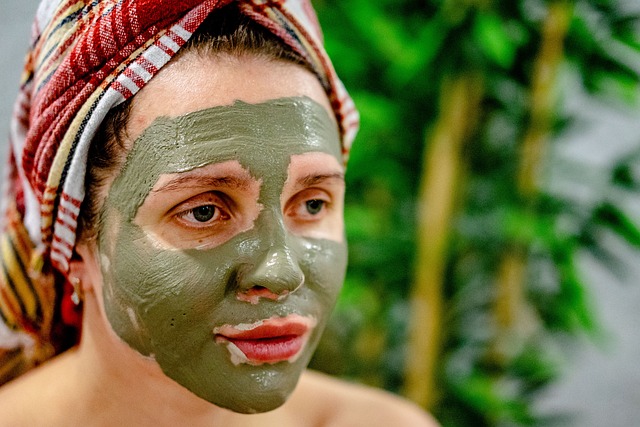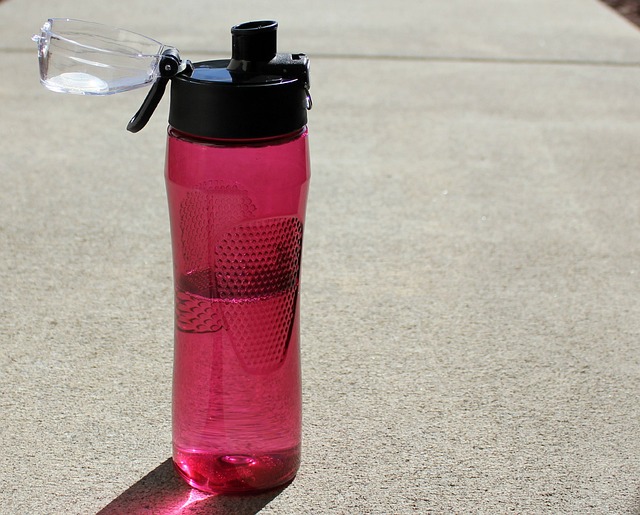The constant battle against shine, breakouts and clogged pores can be quite irritating. Trust me, I’ve been there. Fortunately, my team and I have searched and have found quite a few of the best working natural skin care routine to help alleviate your greasy skin.
What are the 7 Natural skin care routine for oily skin
One thing you should know is that overproduction and secretion of substance called sebum is the reason why you have an oily skin. The sebum helps to keep your skin hydrated and protected. But too much can lead to pores being clogged, breakouts, and a shiny, greasy complexion.
“Good skin care is a lifetime commitment” – Georgia Louise
There is nothing you can do to stop the production since it is caused by certain factors such as genetics, hormones, diet, stress and medications.
Below are 7 natural skin care routines which are designed to control sebum production and keep your skin matte and shine free.
1. Exfoliate your skin 2 times per week

Exfoliating your skin can help curb oily skin by removing dead cells and aids unclog pores.
This helps in reducing the appearance of blackheads and whiteheads and as well control serum production. When you exfoliate, you are remove the dirt and oil from the skin’s surface.
This can help with breakouts
For your oily skin, We advice that you gently and carefully as it may cause an irritation.
You should be careful when picking an exfoliator. Look for the ones which contains glycolic acid or lactic acid as it’s ingredient. These acids are gentle enough for everyday use and can improve your skin’s texture and reduce the appearance of pores.
Kindly note that you should not exfoliate too often as there could be repercussions. It could do more harm than good. It may lead to irritations and more break outs.
Tips for exfoliating your skin
- Use a gentle exfoliator that is designed for oily skin
- Exfoliate your skin 1-2 times per week.
- Be gentle when you exfoliate. Avoid scrubbing your skin too hard, as this can irritate the skin.
- Rinse your skin thoroughly after exfoliating.
- Moisturize your skin after exfoliating
2. Using cleanser

Cleanser can help you curb oily skin by removing dirt, oil, and makeup from the skin’s surface. This can help to prevent breakouts and keep the skin looking matte and shine-free.
When choosing a cleanser for oily skin, you should look for a product that is gentle and non-comedogenic and have the ingredient salicylic acid.
It is important to avoid cleansers that contain certain ingredients like sulfates or alcohol because these can irritate the skin and strip it of its natural oils.
You should cleanse your skin twice a day, once in the morning and once in the evening. Incase you have very oily skin; you may need to cleanse more often. However, it is important to avoid over-cleansing, as this can irritate the skin and lead to breakouts.
By following these tips, you can help to control oily skin and achieve a clearer, more radiant complexion
Tips for using a cleanser
- Wet your face with lukewarm water.
- Apply a small amount of cleanser to your fingertips and massage it into your skin in circular motions.
- Rinse your skin thoroughly with lukewarm water.
- Pat your skin dry with a clean towel.
3. Moisturizing your skin everyday

Moisturizing your skin every day is important for all skin types, including oily skin.
Even though oily skin produces more sebum than other skin types, it is still important to moisturize to keep the skin hydrated and protected.
When choosing a moisturizer for oily skin, it is important to look for a product that is oil-free and non-comedogenic.
This means that the moisturizer will not clog your pores or make your skin feel greasy. It is also important to choose a moisturizer that is designed for your specific skin type. For example, if you have acne-prone skin, you may want to choose a moisturizer that contains salicylic acid or benzoyl peroxide.
It is important to moisturize your skin every day, even if you have oily skin. By following these tips, you can help to keep your skin hydrated and protected without making it feel greasy.
If you have oily skin, it is important to choose a moisturizer that is designed for your skin type. Look for a moisturizer that is oil-free and non-comedogenic. You may also want to choose a moisturizer that contains ingredients that can help to control sebum production, such as salicylic acid or benzoyl peroxide.
Moisturizing your skin every day can help;
- Keep your skin hydrated
- Protect your skin from environmental damage
- Reduce the appearance of wrinkles and fine lines
- Improve your skin’s overall health and appearance
4. Use a mask twice per week

Using a mask twice a week can help to deep clean your skin and remove impurities. This can help to reduce the appearance of blackheads and whiteheads, and it can also help to control sebum production.
When choosing a mask for oily skin, it is important to look for a product that is designed to absorb excess oil and impurities. Clay masks and charcoal masks are both good options for oily skin.
Tips in masking
- Cleanse your skin before applying the mask
- Apply a thin layer of the mask to your face and neck, avoiding the eyes and lips
- Leave the mask on for 10-15 minutes, or according to the package directions.
- Rinse the mask off with lukewarm water
- Pat your skin dry with a clean towel
It is important to use a mask twice a week, but not more often. Using a mask too often can irritate the skin and lead to breakouts.
Benefits of masking twice a week
- Deep clean your skin
- Remove impurities
- Reduce the appearance of blackheads and whiteheads
- Control sebum production
If you have oily skin, it is important to choose a mask that is designed for your skin type. Look for a mask that is clay-based or charcoal-based.
You may also want to choose a mask that contains ingredients that can help to control sebum production, such as salicylic acid or benzoyl peroxide.
5. Use a toner on your oily skin

Using a toner to help control sebum production can be a great way to keep your oily skin looking matte and shine-free. Toners are typically applied to the skin after cleansing and exfoliating, and they help to remove any remaining impurities, balance the skin’s pH and serves as an astringent.
When choosing a toner for oily skin, it is important to look for a product that is alcohol-free and non-comedogenic. This means that the toner will not dry out your skin or clog your pores. It is also important to choose a toner that contains ingredients that can help to control sebum production, such as salicylic acid or witch hazel
Tips for using a toner
- Apply the toner to a cotton ball or pad and gently wipe it over your face and neck, avoiding the eyes and lips.
- Use the toner twice a day, once in the morning and once in the evening.
- Allow the toner to dry completely before applying any other skin care products.
Benefits of using a toner
- Remove impurities
- Balance the skin’s pH
- Control sebum production
- Keep the skin looking matte and shine-free
6. Avoiding hot sauce and too much spicy food

Skipping hot sauce can help with oily skin because it can reduce inflammation. Inflammation is a major contributing factor to oily skin, as it can trigger the sebaceous glands to produce more oil.
Hot sauce is a common trigger for inflammation, can irritate the skin and cause redness, dryness, and breakouts so avoiding it is really beneficial.
Skipping hot sauce can be a simple and effective way to improve the appearance of oily skin. By following these tips, you can help to reduce inflammation, improve the skin’s overall health, and achieve a clearer, more radiant complexion.
Reasons why you should avoid too much spicy foods and hot sauce
- Choose milder hot sauces over hotter ones
- Avoid adding hot sauce to your food
Benefits
- help to improve the skin’s overall health
- help to soothe the skin and improve its appearance
7. Staying hydrated

Staying hydrated is important for all skin types, including oily skin. When you are dehydrated, your skin can become dry, flaky, and irritated. This can lead to an increase in oil production, as your skin tries to compensate for the lack of moisture.
If you have oily skin, it is important to stay hydrated to help control oil production and keep your skin looking its best.
Tips for staying hydrated
- Drink plenty of water throughout the day. Aim for eight glasses of water per day, but more if you are exercising or sweating heavily
- Eat fruits and vegetables that are high in water content, such as watermelon, cucumbers, and tomatoes.
- Avoid sugary drinks, as these can dehydrate your skin.
- Use a humidifier in your home or office to help keep the air moist.
Benefits of staying hydrated
- Drinking plenty of water can help to reduce inflammation throughout your body
- Drinking plenty of water helps to flush out toxins from your body.
- Drinking plenty of water helps to keep your skin hydrated and plump
Bottom line
Oily skin doesn’t mean you should be gloomy. Did you know those who have oily skin tend to have fewer wrinkles as they age?
Note that oily skin can be triggered by several factors including stress and poor sleeping habits. So take care of your skin as it forms part of your first impression.

